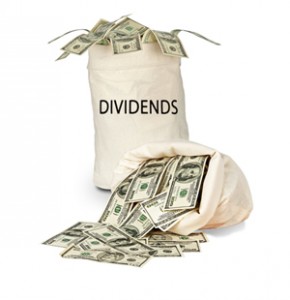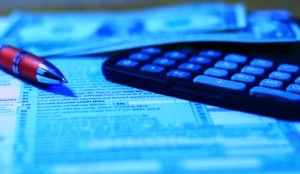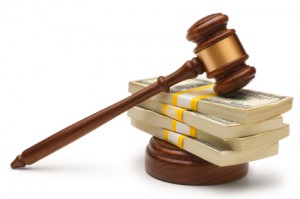In this blog post, Sakshi Bhatnagar of National Law University Odisha, Cuttack writes about what is the dividend, how it is distributed amongst preferential and equity shareholders, the various sources of dividends and what happens when dividends are not distributed.
What is a Dividend?
A dividend is that part of the profits of a company that is legally available for distribution to the shareholders of the company a return on the share capital which has been subscribed by a shareholder and is paid to the shareholders by the company. Dividends are only paid to the registered shareholders of the company and should not be paid in cash
Its articles of association should authorize the payment of dividends, and if it is not authorized, then the articles of association have to be amended accordingly. According to Section 51 of the Companies Act, 2013, the dividends have to be paid in proportion to the amount paid-up on each share.
Dividend Types and Dividend on Different Shares
Final dividend: A final dividend is that dividend which is declared at the annual general meeting of the company. It becomes an obligation upon the company once it has been declared in the meeting. It is declared only on the recommendation of the Board of Directors.
Interim dividend: This dividend is declared between two annual general meetings of the company by the Board of Directors. Section 123(3)[1] Authorizes the board of directors of a company to declare interim dividends during any financial year out of the surplus of the profits of the company.The amount of the dividend, including interim dividend, shall be deposited in a scheduled bank in a separate account within five days from the date of declaration of such dividend.[2] The amount of dividend, including the amount of the interim dividend, should be deposited in a scheduled bank in a separate account within five days from the date of declaration of such dividend where if the articles of the company do not authorize so, it has to be amended accordingly.[3]The dividends are to be given only to the registered shareholders, and no dividend is paid to the shareholders in case there is a failure in repayment of deposits by those shareholders.
 Dividend on equity and preferential shares: A company which fails to comply with the provisions of Sections 73 and 74 shall not, so long as such failure continues, declare any dividend on its equity shares.[4] In the case of preferential shares, the dividends can either be in an amount calculated at fixed rate or a fixed amount, which has to be in consonance with the articles of association. The rights of the preferential shareholders in respect to dividends are subjected to three basic conditions- that the preferential dividends can only be paid if the company has sufficient profits, that a dividend becomes payable to the shareholders only when it is declared in the manner laid down in the Act and by the company’s articles, and there should have been a formal declaration.
Dividend on equity and preferential shares: A company which fails to comply with the provisions of Sections 73 and 74 shall not, so long as such failure continues, declare any dividend on its equity shares.[4] In the case of preferential shares, the dividends can either be in an amount calculated at fixed rate or a fixed amount, which has to be in consonance with the articles of association. The rights of the preferential shareholders in respect to dividends are subjected to three basic conditions- that the preferential dividends can only be paid if the company has sufficient profits, that a dividend becomes payable to the shareholders only when it is declared in the manner laid down in the Act and by the company’s articles, and there should have been a formal declaration.
Preference shareholders are not entitled to treat preference dividend as a debt and sue for its payment in the first instance[5].The preferential shares can be of two types-cumulative or non-cumulative. Since dividends are a subject of availability of distributable profits, cumulative preferential shares are those shares in which the arrears are accumulated for the financial years on which dividends are not given and are these accumulated arrears are given along with the dividends in a financial year where distributable profits are available. No such benefit of accumulated arrears is available to the non-cumulative preferential shareholders.
Preferential shareholders are given priority over the equity shareholders. The part of the distributable profit is given to the equity shareholders as dividends only after all the preferential shareholders are paid the dividends. In case no dividends are left after distribution amongst preferential shareholders, then no dividend is given to the equity shareholders for that financial year.
What Are the Sources of Declaring Dividends?
Section 123 of the Companies Act enables a company to declare its dividend only out of the profits of the company for that year or for any previous financial year after depreciation has been charged and kept undisturbed concerning the provisions of Schedule II of Companies Act, 2013. The dividends can also be declared out of the money provided by the Central Government or a State Government for the payment of the dividend by the company in pursuance of a guarantee given by that Government.[6]
 A company shall transfer the appropriate amount of profits for that financial year into its reserves account before declaring any dividend, and a company is bound to declare its dividends only from free reserves.[7]In the case of Inadequacy or absence of profits in any financial year, according to the Rule 3 of Companies (Declaration and Payment of Dividend) Rules, 2014, a company can declare dividend out of surplus which is subjected to the following conditions:
A company shall transfer the appropriate amount of profits for that financial year into its reserves account before declaring any dividend, and a company is bound to declare its dividends only from free reserves.[7]In the case of Inadequacy or absence of profits in any financial year, according to the Rule 3 of Companies (Declaration and Payment of Dividend) Rules, 2014, a company can declare dividend out of surplus which is subjected to the following conditions:
(1) The rate of dividend declared shall not exceed the average of the rates at which dividend was declared by it in the three years immediately preceding that year:
Provided that this sub-rule shall not apply to a company which has not declared any dividend in each of preceding three financial years.
(2) The total amount to be drawn from such accumulated profits shall not exceed one-tenth of the sum of its paid-up share capital and free reserves as appearing in the latest audited financial statement.
(3) The amount so drawn shall first be utilized to set off the losses incurred in the financial year in which dividend is declared any dividend in respect of equity shares is declared.
(4) The balance of reserves after such withdrawal shall not fall below fifteen per cent of its paid-up share capital as appearing in the latest audited financial statement.
(5) No company shall declare shall declare dividend unless carried over previous losses and depreciation not provided in previous year are set off against profit of the company of the current year the loss or depreciation, whichever is less, in previous years is set off against the profit of the company for the year for which dividend is declared or paid.[8]
Unpaid Dividend Account
In case a dividend is declared by a company and is either not paid or not claimed by the shareholder within 30 days of the declaration, the company would then within seven days after the expiry of these 30 days, transfer the amount to unpaid dividend account. 
Section 124(4) states that any person claiming to be entitled to any money transferred under sub-section (1) to the Unpaid Dividend Account of the company may apply to the company for payment of the money claimed.[9] Such details of the transfer of money to the unpaid dividend account should be placed on the website within a period of ninety days from making a transfer in the account. The statement so published should mention the names, address and should also mention any other website which has been approved by the Central government.
According to the Section 127(6), the shares regarding the unclaimed dividends shall be transferred to the Investor Education and Protection Fund by the company along with a statement which would contain details as prescribed.
Offenses and Penalties
- If a company fails to comply with any of the requirements of Section 124 of Companies Act, 2013 which deals with unpaid dividend account in case of unclaimed dividends, the company shall be punishable with fine which shall not be less than five lakh rupees but which may extend to twenty-five lakh rupees and every officer of the company who is in default shall be punishable with fine which shall not be less than one lakh rupees but which may extend to five lakh rupees.[10]
- If a company after declaring dividends doesn’t give dividends to its shareholders within 30 days of announcement, then it shall be liable under Section 127 of the Companies Act, 2013 and every director if he is a known party to this default, would be punished with imprisonment that might extend to two years and the company would be liable to pay simple interest at the rate of 18% p.a. during the period for which such default continues.[11]
 Exception to the Section 127 which talks about punishment for failure to distribute profits, lies in the proviso to the section which states that no offense is committed in the following situations:
Exception to the Section 127 which talks about punishment for failure to distribute profits, lies in the proviso to the section which states that no offense is committed in the following situations:
- In case the dividend couldn’t be paid because of the reason of operation of law
- In case certain directions for the issue of dividends in a particular manner are given by the shareholder and such directions are not in consonance with the Act, and he has been informed of the same.
- In case there is a dispute in regards to the rights of receiving dividend
- In case such dividend has been adjusted lawfully against any due sum from the shareholder
- In case the failure in paying a dividend or posting the warrant within the period under this section was not due to any default on the part of the company.[12]
[divider]
Footnotes:
[1] Companies Act 2013.
[2] S 123 (4), Companies Act 2013.
[3] Id
[4] S 123 (6), Companies Act 2013
[5] Evling v Israel & Oppenheimer Ltd (1918) 1 Ch. 101
[6]S 123 (1) (b), Companies Act 2013.
[7] See S 2(43); Companies Act 2013 for the definition of free reserves.
[8] Rule 3 of Companies (Declaration and Payment of Dividend) Rules, 2014.
[9] S 124(4), Companies Act 2013
[10] S 124(7), Companies Act 2013
[11] S 127, Companies Act 2013
[12] Id
 Serato DJ Crack 2025Serato DJ PRO Crack
Serato DJ Crack 2025Serato DJ PRO Crack










 Allow notifications
Allow notifications


